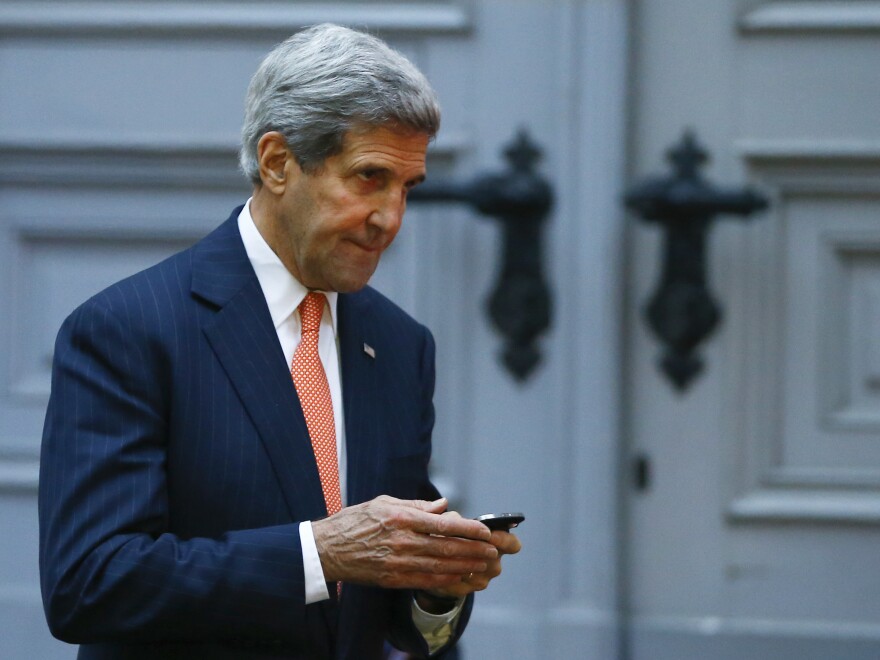U.S. Secretary of State John Kerry and his Iranian counterpart, Foreign Minister Mohammad Javad Zarif, added another meeting today in Vienna in the push toward an agreement on Iran's nuclear program.
Iranian news reports had earlier said Zarif was returning to Tehran for further instructions. And Kerry had been scheduled to leave Vienna for Paris – something he could still do while talks continue — before adding the late Friday meeting.
With a Monday deadline for an accord just days away, Kerry has had three meetings with Zarif and Catherine Ashton, the European Union's foreign policy chief. The talks in Vienna also involve diplomats from Britain, China, France, Germany and Russia.
British Foreign Secretary Philip Hammond said there was still work to do.
"We're very clear that we have to get more flexibility from the Iranians," he said. "In return, we're prepared to show some flexibility on our side."
At issue are Iran's ability to enrich uranium for nuclear fuel, and the schedule for lifting sanctions against the Islamic republic.
NPR's Peter Kenyon, reporting here, points to the other sticky issues: the Arak heavy water reactor, the Fordow underground enrichment facility, the possible military dimensions of Iran's research, monitoring and verification, and mutual mistrust and supicion.
Kenyon, who is in Vienna reporting on the talks, tells our Newscast Unit: "With intense talks grinding on, speculation is flowing outside the negotiating room, with conflicting accounts of which side may be offering some last-minute proposal."
NPR's Eyder Peralta, who wrote Monday about the current round of talks, provided some background to how the sides got to this point. He wrote:
"If you remember, this round of negotiations kicked off about a year ago, after Iran agreed to pause parts of its nuclear activities while the two sides sought a long-lasting accord. At the time, even that deal was hailed as historic, because the United States and Iran have had no formal ties since 1979.
"So whatever happens this week will be a big deal."
Copyright 2021 NPR. To see more, visit https://www.npr.org. 9(MDAxODg3MTg0MDEyMTg2NTY3OTI5YTI3ZA004))



